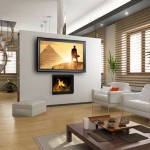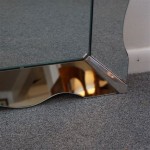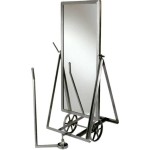Do You Need Apple TV to Screen Mirror iPhone?
Screen mirroring, the ability to wirelessly display the contents of an iPhone's screen on a larger display, offers a convenient way to share photos, videos, presentations, and more. While Apple TV is often associated with this functionality, it is not the only option available to iPhone users. This article will explore the various methods for screen mirroring an iPhone, outlining the requirements and alternatives to using Apple TV.
AirPlay and Apple TV: A Seamless Integration
Apple's proprietary wireless streaming protocol, AirPlay, enables seamless screen mirroring between iPhones and Apple TVs. AirPlay leverages the local Wi-Fi network to transmit audio and video data, offering high-quality streaming with minimal latency. This tight integration within the Apple ecosystem makes Apple TV a popular choice for iPhone users seeking a straightforward screen mirroring solution.
Alternative Screen Mirroring Methods for iPhones
While Apple TV provides a polished screen mirroring experience, several alternative methods cater to users who do not own an Apple TV or prefer other solutions. These alternatives offer varying degrees of compatibility, functionality, and ease of use.
Smart TVs with AirPlay 2 Support
Many modern Smart TVs from manufacturers like Samsung, LG, Sony, and Vizio have integrated AirPlay 2 support. This allows direct screen mirroring from an iPhone to the TV without needing an Apple TV. Users simply need to ensure both the iPhone and the TV are connected to the same Wi-Fi network and then select the TV from the AirPlay menu on the iPhone's Control Center.
Screen Mirroring to Windows PCs and Macs
Several third-party applications enable screen mirroring from an iPhone to a Windows PC or Mac. These applications typically require installation on both the computer and the iPhone and utilize the local network for communication. While functionality can vary, many of these applications offer features beyond basic screen mirroring, such as recording the iPhone's screen or transferring files.
Utilizing Chromecast for Screen Mirroring
Google's Chromecast, a popular streaming device, can also be used for screen mirroring from an iPhone, albeit with some limitations. Unlike the native AirPlay support offered by Apple TV and AirPlay 2-compatible TVs, mirroring to Chromecast from iOS often relies on third-party apps that replicate the screen content. While this allows for displaying photos and videos, some apps may not support full screen mirroring functionality or may experience latency issues.
Screen Mirroring via Wired Connections
For situations requiring a more stable and reliable connection, wired screen mirroring is an option. Using a Lightning to HDMI adapter, users can connect their iPhone directly to a TV or monitor with an HDMI input. This method bypasses the potential limitations of wireless connections and offers a consistent, high-quality display. However, it sacrifices the convenience of wireless mirroring.
Factors to Consider When Choosing a Screen Mirroring Method
Selecting the optimal screen mirroring method depends on several factors, including the existing hardware, the desired functionality, and the budget. Users who already own an Apple TV or an AirPlay 2-compatible Smart TV will likely find those solutions the most convenient. Those seeking a more budget-friendly option or needing to mirror to a Windows PC or Mac might consider third-party applications or Chromecast. Finally, users prioritizing stability and minimal latency might opt for a wired connection using a Lightning to HDMI adapter.
Key Considerations for Screen Mirroring Quality
Regardless of the chosen method, several factors can influence the quality of the screen mirroring experience. The strength and stability of the Wi-Fi network play a significant role in wireless mirroring performance. Network congestion can lead to latency and reduced video quality. The processing power of the iPhone and the receiving device can also impact performance, particularly when mirroring demanding content like games or high-resolution videos.
Troubleshooting Common Screen Mirroring Issues
Occasionally, users may encounter issues when screen mirroring. Common problems include connection failures, lag, and audio sync problems. Ensuring both devices are on the same Wi-Fi network and restarting the devices can often resolve these issues. Checking for software updates on both the iPhone and the receiving device is also recommended. For persistent problems, consulting the manufacturer's documentation or support resources can provide further assistance.
Security Considerations for Screen Mirroring
When screen mirroring, it is important to consider the security implications, especially when dealing with sensitive information. Ensure that the network being used is secure and avoid mirroring confidential data in public or untrusted environments. Be mindful of the devices connected to the network, as unauthorized access can compromise privacy. Using a strong Wi-Fi password and enabling network encryption features can enhance security during screen mirroring sessions.

How To Use Apple Airplay Mirror Your Iphone Mac Screen On Tv Roku And More Cnet

3 Ways To Mirror Iphone Tv Without Apple Istreamer

What S Screen Mirroring Iphone And How Does It Work Rapid Repair

How To Mirror Your Iphone Or Ipad Screen On Apple Tv A Smart Macrumors

Use Airplay To Stream Or Mirror The Screen Of Your Iphone Ipad Apple Support
Screen Mirroring Iphone To Tv With Or Without Airplay

How To Mirror Iphone Tv Without Apple Airdroid

Use Airplay To Stream Or Mirror The Screen Of Your Iphone Ipad Apple Support

Use Airplay To Stream Or Mirror The Screen Of Your Iphone Ipad Apple Support

How To Airplay A Tv Zdnet








